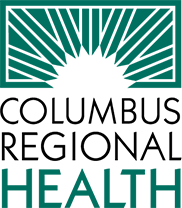Who is Likely to Develop a Difficult Wound?
The people most likely to develop a non-healing wound are those with either arterial or venous disease as well as people with neuropathy. Arterial disease, or atherosclerosis, of the peripheral arteries causes insufficient blood flow to the area of the wound. Without the necessary blood flow to provide oxygen and nutrients, a wound can fail to heal. Most people who have arterial disease are or have been smokers or are advanced in age. These wounds tend to be at the tips of the toes and often start appearing as harmless scabs. People with poor arterial circulation to the legs and feet will often also have trouble with cramping in the leg muscles when walking, or even a burning sensation in the feet – especially when they elevate the feet, such as when they go to bed. Arterial wounds often require opening of the arteries, or other procedures to provide improved arterial flow to the area.
Venous disease is where the veins do not return blood properly from a limb, usually the leg, and the pressure from the blood pooling prevents the arterial blood from reaching the area near the skin. People with venous wounds may have normal arterial supply. Venous disease is also associated with having varicose veins, swelling, blue discoloration of the feet and legs. Often these wounds resolve with control of the swelling, but sometimes require removal of the problematic veins to allow healing of the wounds.
Neuropathy is a lack of sensation in an area, usually due to diabetes, but also can be caused by chemotherapy or age. People develop wounds from rubbing or pressure because they can’t feel the area being injured. Diabetics are also particularly at risk to have these wounds become infected. These wounds are often difficult to heal and require pressure relief sometimes using special shoes or boots. If the neuropathy is permanent, ongoing foot care with a podiatrist is usually advisable. For all wounds, antibiotics are used if there is infection present.
At the Wound Center at Columbus Regional Health, we have a team of physicians trained in advanced wound care who can diagnose and treat your wound using the most modern practices and products available. We will help you obtain the supplies you need to dress your wounds appropriately. We are also trained in administering hyperbaric oxygen therapy for particularly difficult wounds when appropriate. If you have a non-healing wound, ask your doctor about referring you to the Wound Center or visit CRH.org/wound or call 812-376-5373.
 Douglas Roese, MD
Douglas Roese, MD
Columbus Regional Health
Wound Center Medical Director

CRH News
-
Final Two CRH Practices Move to NexusPark
Apr 18, 2024, 12:36 PM by DeClue, A.CRH at NexusPark officially opened in late January, and more than 15 provider practices and services have relocated to the space in the first quarter of 2024.Full story -
Wound Center Receives National Awards
Apr 3, 2024, 15:21 PM by DeClue, A.The Wound Center achieved outstanding clinical outcomes for twelve consecutive months, including a patient satisfaction rate higher than 92 percentFull story -
CRH conducting independent public health survey
Mar 26, 2024, 12:41 PM by DeClue, A.Columbus Regional Health is conducting a Health Status Survey by telephone and online from March through May.Full story -
Columbus Regional Health offers new online health portal for expectant parents
Mar 25, 2024, 14:21 PM by DeClue, A.With CRH’s new My Pregnancy Journey, patients can use their computers or mobile devices to review digital prenatal education from a trusted source and track important decisions and tasks that need to happen at specific pregnancy milestones.Full story -
Additional Medical Practices Move to NexusPark
Mar 25, 2024, 11:24 AM by DeClue, A.More practices and services relocate to NexusPark facility.Full story -
Eclipse office hours for CRH-affiliated services
Mar 21, 2024, 14:01 PM by Laker, J.Office hours for CRH-affiliated practices and service lines for the April 8, 2024, Total Solar Eclipse.Full story

